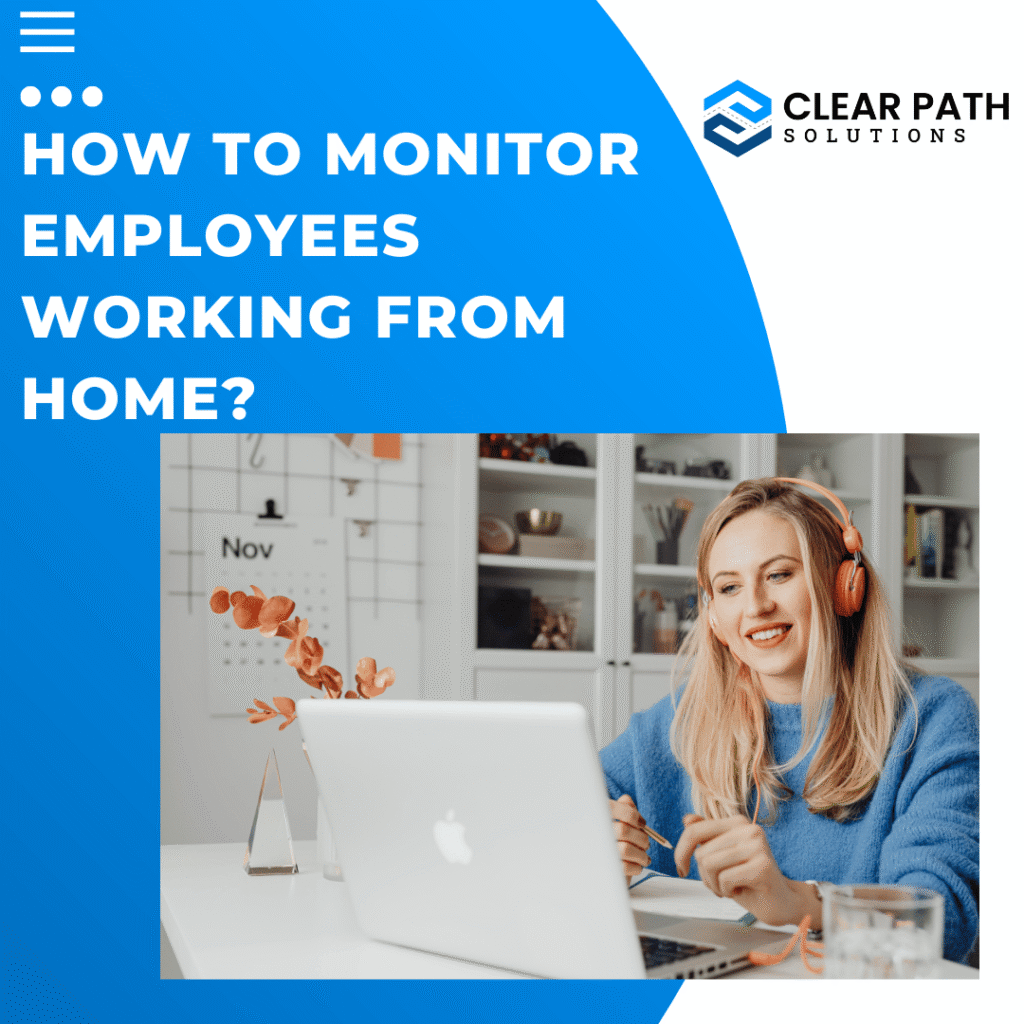The rise of remote and hybrid working in the UK has transformed how businesses operate. While it offers flexibility and productivity benefits, it also presents challenges for employers — one of the biggest being how to monitor employees working from home effectively and legally.
Monitoring isn’t about micromanaging — it’s about ensuring performance, productivity, and compliance while respecting employee privacy. For employers, this trend requires adapting policies, tools, and management strategies to maintain productivity and engagement. Investing in secure digital infrastructure, clear communication channels, and performance tracking is essential. Employers must also focus on fostering inclusivity, supporting employee well-being, and ensuring compliance with labor laws across different regions. Embracing remote work effectively can boost retention, attract top talent, and drive business growth.
In this blog post guide, we’ll cover why monitoring is important, UK legal requirements, monitoring methods, and best practices for managing home-based employees.
Why Monitor Employees Working from Home (WFH)?
Monitoring employees WFH is important to ensure productivity, accountability, and data security while working outside traditional office settings. It helps employers track progress, maintain workflow consistency, and identify potential challenges early. Proper monitoring also builds transparency, supports performance management, and ensures compliance with company policies, ultimately fostering trust, efficiency, and better collaboration within remote teams.
From an employer’s perspective, monitoring helps:
- Track productivity and ensure work is being completed on time.
- Maintain communication and team collaboration.
- Ensure compliance with company policies and data security requirements.
- Identify support needs for employees who may be struggling.
- Protect business assets from misuse or security breaches.
The key is to balance business needs with employee trust.
Legal Considerations for Monitoring in the UK
In the UK, employee monitoring is subject to strict laws, including:
- UK GDPR and Data Protection Act 2018 – Employers must process personal data lawfully, fairly, and transparently.
- Human Rights Act 1998 – Protects an individual’s right to privacy.
- Employment contracts and policies – Monitoring clauses should be clearly stated.
Before implementing any kind of monitoring system or process the Employers must:
- Inform employees in advance about what will be monitored, why, and how.
- Conduct a Data Protection Impact Assessment (DPIA) to identify and mitigate privacy risks.
- Only monitor to the extent necessary for business purposes.
- Keep monitoring proportionate and relevant to the job.
Failing to comply could lead to employee grievances, reputational damage, and fines from the Information Commissioner’s Office (ICO). Transparent policies, clear communication, and compliance with regulations are essential to avoid legal risks.
Methods for Monitoring Remote Employees
1.Time Tracking Tools: Software like Toggl Track, Hubstaff, or Clockify records working hours and breaks.
Best for: Tracking billable hours, especially for project-based roles.
- Project Management Systems: Tools such as Trello, Asana, or Monday.com let managers track task progress and deadlines without constant check-ins.
Best for: Collaborative teams with multiple ongoing projects. - Communication Platforms: Microsoft Teams, Slack, and Zoom facilitate real-time communication and allow you to see engagement levels.
Best for: Maintaining team connection and quick updates. - Productivity Monitoring Software: Systems like ActivTrak or Time Doctor can track application usage, websites visited, and active/idle times.
Best for: Roles where software usage directly impacts productivity.
Important: Use sparingly and with transparency — intrusive monitoring can damage trust.
- Regular Check-Ins: Video calls or phone meetings help maintain personal connection and allow employees to share updates and challenges.
Best for: Building trust and ensuring accountability.
Some Best Practices for Monitoring Employees Working from Home
- Be Transparent: Communicate the employees clearly and explain well:
- What you will monitor (e.g., log-in times, task completion)
- Why you are monitoring
- How the data will be used
Transparency reduces suspicion and promotes cooperation.
- Focus on Outcomes, Not Activity: Instead of counting keystrokes or mouse clicks, measure results — projects completed, quality of work, deadlines met.
- Maintain Regular Communication: Daily or weekly catch-ups help identify issues early and prevent isolation.
- Provide the Right Tools: Ensure employees have-
- Reliable internet
- Access to company-approved software
- Cybersecurity measures like VPNs
- Support Employee Wellbeing: Remote monitoring shouldn’t feel like surveillance — combine it with wellness checks and open feedback channels.
- Keep Data Secure: Any data collected through monitoring should be encrypted, stored securely, and only accessible to authorised personnel.
Balancing Trust and Accountability while monitoring
The most effective monitoring strategies build a culture of trust while ensuring accountability. Always take care not to make remote employees feel micromanaged.
Micromanaging can significantly:
- Reduce morale
- Increase stress
- Lead to higher turnover
Instead, empower employees by:
- Setting clear expectations
- Offering autonomy over their work
- Recognising achievements
Common Mistakes to be avoided by Employers
- Not communicating to employees they are being monitored – This can be illegal in the UK.
- Overly intrusive tracking – Creates resentment and damages trust.
- Focusing on hours instead of outcomes – Encourages presenteeism, not productivity.
- Failing to act on data – Collecting performance data is pointless if you don’t use it constructively.
- Neglecting wellbeing – Monitoring should be paired with genuine care for employee health.
Sample Monitoring Policy Statement for UK Employers
“[Company Name] uses project management tools, communication platforms, and time tracking systems to support productivity and collaboration. Monitoring is conducted in line with UK GDPR and our Privacy Policy. Data collected is used solely for business purposes and is stored securely.”
This should be included in your employee handbook or remote work policy.
How to Implement a Monitoring Strategy
- Assess your needs – Identify what you actually need to monitor.
- Consult employees – Gain feedback before introducing tools.
- Choose the right software – Ensure compliance with UK data laws.
- Train staff – Show how to use tools effectively.
- Review regularly – Adjust based on feedback and results.
When implemented thoughtfully, monitoring enhances collaboration, protects company assets, and supports employee development. Ultimately, an ethical and structured monitoring strategy helps employers strengthen remote workforce management and drive long-term organizational success.
************************************
For many UK businesses, especially SMEs, implementing a remote monitoring policy can be daunting. This is where Clear Path Solutions can help.
As a valued Human Resources Outsourcing Partner and with all our expertise, we assist our clients to:
- Develop legally compliant monitoring policies
- Recommend the right tools for your industry
- Provide employee training on remote working best practices
- Ensure GDPR and data privacy compliance
- Monitor performance metrics and report to management
By outsourcing your HR functions to us, you as an employer can save time, reduce legal risks, and maintain strong relationships with remote teams.
We help UK businesses set up effective, ethical, and legally compliant systems for monitoring remote employees. From drafting policies to choosing the right tools and training your team, our experts make sure you get the balance right between productivity and trust.
Stay compliant. Boost productivity. Support your remote team.
📞 Call us today on [020 377 30992]
📧 Email: [sales@clearpathuk.co.uk]





